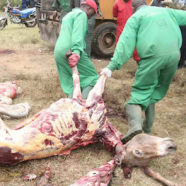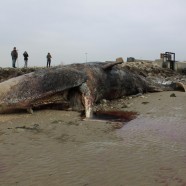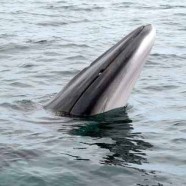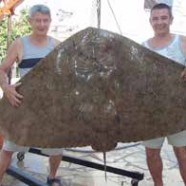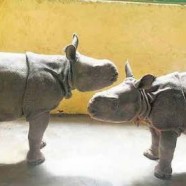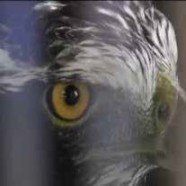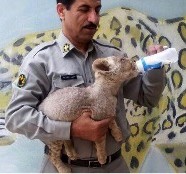A New Era for Elephants
The Chinese government decides to close its domestic ivory market. As a first step, on 31 March 2017 at the latest, approved ivory processing workshops will no longer have the right to engage in this activity. Secondly, by December 31, 2017, approved retail ivory stores will have to abandon this market. These workshops and stores were supplied with “legal” ivory from some Southern African countries and ivory poached across the African continent.
The reconversion of workshops and stores will be assisted.
The fight against raw and carved ivories smuggling and clandestine ivory workshops will be strengthened.
Consumer information will be increased to “create a propitious environment for the protection of elephants, other wild fauna and flora” according to the Chinese government’s announcement.
“For cultural reasons”, the only authorised commercial activity involving ivory will be the auction of certified antiques.
To save the donkeys from the Chinese predators
A tremendous boom in donkey skin exports towards China from northern to southern Africa has been noticed over the last year. The countries hit the most are Egypt, Burkina Faso, Mali, Niger, Kenya, Tanzania, Botswana and South Africa. In Egypt, one donkey was sold 17 € two years ago and 170 € today.
Burkina Faso is the symbol of this sudden persecution.
– 1st quarter 2015: 1000 skins exported.
– 4th quarter 2015: 18.000 skins.
– 1st half of the year 2016: 65.000 skins.
Ivory Theft in the Seine Bay
An adult sperm whale was found stranded in the Seine mouth on Friday, November 25, 2016 downstream to Port 2000, Le Havre. The carcass is still in place. Thieves have snatched or cut the ivory teeth. A biologist confirms that teeth are quickly stolen from the sperm whales carcasses after their stranding.
Ivory Theft in the Seine Bay
V2
An adult sperm whale was found stranded in the Seine mouth on Friday, November 25, 2016 downstream to Port 2000, Le Havre. The carcass is still in place. Thieves have snatched or cut the ivory teeth. A biologist confirms that teeth are quickly stolen from the sperm whales carcasses after their stranding.
“On the Trail” n°14 – 1st July – 30th September 2016
“On the Trail” n°14
Information and analysis bulletin on animal poaching and smuggling
n°14 / 1st July – 30th September 2016
112 pages (6.8 Mo)
Whales and marine mammals, page 11
Bags stuffed with monkeys, turtles, pangolins, ivory and birds, cruelty and money go together. Countless victims of so-called sustainable palm oil. Scared eyes and rangers who die or bring up cubs on the bottle.
112 illustrated pages.
“On the Trail” n°14 – 1st July – 30th September 2016
“On the Trail” n°14
Information and analysis bulletin on animal poaching and smuggling
n°14 / 1st July – 30th September 2016
112 pages (6.8 Mo)
Seahorses, abalones, queen conches, sea cucumbers and fishes, pages 3 to 10
Bags stuffed with monkeys, turtles, pangolins, ivory and birds, cruelty and money go together. Countless victims of so-called sustainable palm oil. Scared eyes and rangers who die or bring up cubs on the bottle.
112 illustrated pages.
“On the Trail” n°14 – 1st July – 30th September 2016
“On the Trail” n°14
Information and analysis bulletin on animal poaching and smuggling
n°14 / 1st July – 30th September 2016
112 pages (6.8 Mo)
Rhinoceroses, elephants and hippopotamuses, pages 59 to 98
Bags stuffed with monkeys, turtles, pangolins, ivory and birds, cruelty and money go together. Countless victims of so-called sustainable palm oil. Scared eyes and rangers who die or bring up cubs on the bottle.
112 illustrated pages.
“On the Trail” n°14 – 1st July – 30th September 2016
“On the Trail” n°14
Information and analysis bulletin on animal poaching and smuggling
n°14 / 1st July – 30th September 2016
112 pages (6.8 Mo)
Birds, pages 27 to 31
Bags stuffed with monkeys, turtles, pangolins, ivory and birds, cruelty and money go together. Countless victims of so-called sustainable palm oil. Scared eyes and rangers who die or bring up cubs on the bottle.
112 illustrated pages.
“On the Trail” n°14 – 1st July – 30th September 2016
“On the Trail” n°14
Information and analysis bulletin on animal poaching and smuggling
n°14 / 1st July – 30th September 2016
112 pages (6.8 Mo)
Bags stuffed with monkeys, turtles, pangolins, ivory and birds, cruelty and money go together. Countless victims of so-called sustainable palm oil. Scared eyes and rangers who die or bring up cubs on the bottle.
112 illustrated pages.
IWC comes to the aid of whales
Press release n°3
66th IWC – International Whaling Commission
Portoroz – Slovenia
24-28 october 2016
3 positive resolutions adopted by vote :
1 – Resolution on Cetaceans and their Contribution to Ecosystem Functioning submitted by Chile, Argentina, Brazil, Costa Rica, Dominican Republic, Mexico and Uruguay.
At last, whales are no more considered as absolute predators and competitors with fishing activities. The resolution instructs the IWC Scientific Committee to include in its works services rendered by alive and dead cetaceans. This is a satisfaction and a success for Robin des Bois who has been working on this issue since 2010.




